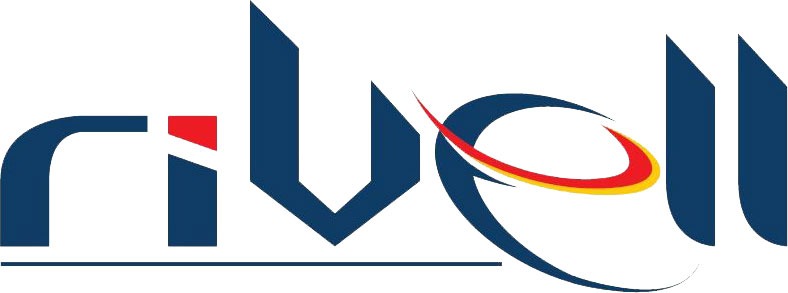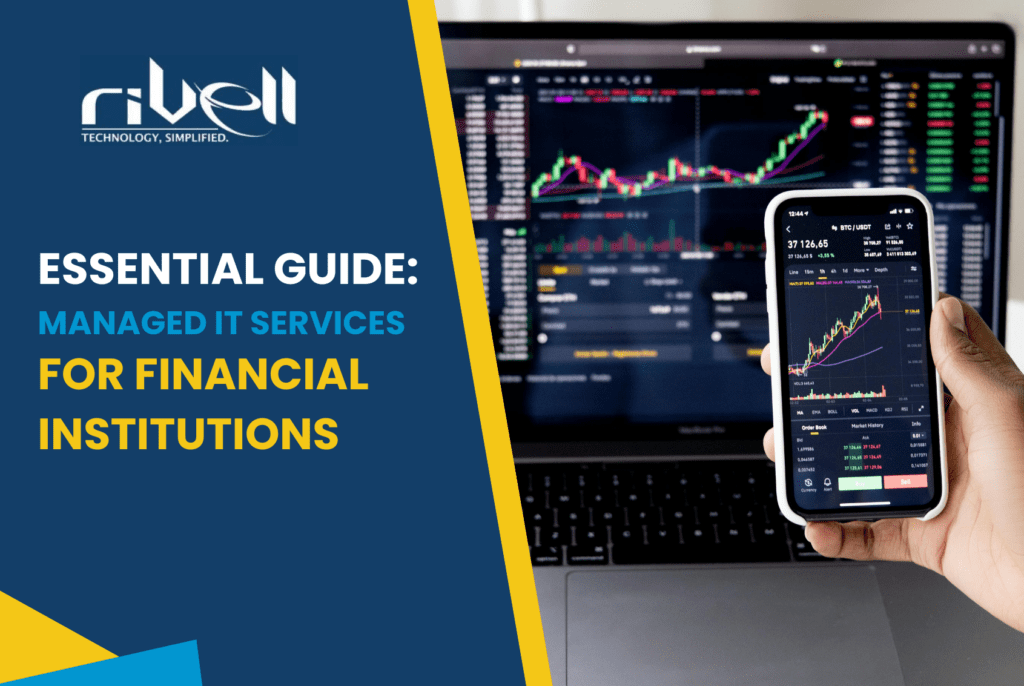Financial institutions operate in a highly sensitive environment. They hold vast amounts of customer data, making them prime cyberattack targets. According to a Verizon 2024 Data Breach Investigations Report, the financial services industry remains a top target for cybercriminals, with 14% of security breaches being conducted by exploiting loopholes and costing $46,000/security breach.
A complex web of regulations also governs how this data is handled and protected. It creates a unique set of challenges for IT teams within financial institutions: balancing robust security with strict compliance requirements.
A reliable managed IT services provider can be a powerful ally in this ongoing battle. By partnering with a team of experts, financial institutions can gain access to advanced security solutions, ensure compliance with industry regulations, and free up internal IT resources to focus on strategic initiatives.
The Importance of Managed IT Services for Financial Institutions
Financial institutions operate at the crossroads of security and innovation. They juggle the need to safeguard sensitive financial data with the pressure to adopt new technologies for efficiency and customer satisfaction. Here’s where the challenges genuinely come into play:
Data Breaches and Cyber Threats
Due to the vast amount of sensitive data, they hold, financial institutions are prime targets for cybercriminals. These breaches can devastate, leading to economic losses, reputational damage, and regulatory fines.
Regulatory Compliance
The financial sector is heavily regulated, with complex rules governing data security, privacy, and reporting. Keeping up with these ever-evolving regulations requires significant expertise and resources.
Maintaining Secure and Efficient IT Infrastructure
Financial institutions rely on a complex IT infrastructure to function effectively. This infrastructure must be constantly monitored, maintained, and updated to ensure peak performance and security.
Supporting Remote Workforces
The rise of remote work adds another layer of complexity. Financial institutions must ensure secure access to critical systems and data for employees outside the traditional office environment.
Managed IT services providers can be a game-changer for financial institutions, offering solutions to these challenges through:
Enhanced Security Measures
Managed service providers offer advanced security solutions, such as intrusion detection, vulnerability management, and ongoing threat monitoring. This proactive approach helps identify and mitigate cyber threats before they can cause damage.
Proactive Maintenance and Reduced Downtime
Regular maintenance and updates are crucial to prevent security vulnerabilities and system outages. Managed service providers offer scheduled maintenance plans to minimize downtime and ensure your systems always operate efficiently.
Regulatory Compliance Assistance
Keeping up with ever-changing regulations can be a full-time job. Managed service providers can help navigate the complexities of compliance by providing expert guidance and ensuring your IT infrastructure meets all industry standards.
Improved Scalability and Cost-Effectiveness
Financial institutions need IT solutions that can scale with their business needs. Managed service providers offer flexible solutions tailored to your requirements, helping you avoid the high costs of in-house IT infrastructure expansion.
Increased Employee Productivity
Managed service providers can handle day-to-day IT issues, freeing your internal IT staff to focus on strategic initiatives. This allows employees to be more productive and focus on core business functions.
By partnering with a reliable managed IT services provider, financial institutions can gain a significant advantage in today’s ever-changing digital landscape. They can achieve enhanced security, maintain regulatory compliance, and optimize their IT infrastructure for increased efficiency and employee productivity.
Key Managed IT Services for Financial Institutions
Financial institutions require a comprehensive security posture to protect sensitive data and comply with regulations. Managed IT service providers offer a range of services specifically designed to address the unique needs of this sector. Here’s a breakdown of some essential services and how they benefit financial institutions:
1. Security Services
1. Intrusion Detection and Prevention
These systems continuously monitor network traffic for suspicious activity and prevent unauthorized access.
2. Vulnerability Management
Regular vulnerability scans identify weaknesses in your IT infrastructure, allowing them to be patched before attackers can exploit them.
3. Ongoing Threat Monitoring
Managed service providers monitor the latest cyber threats and update their security measures accordingly, ensuring your institution stays ahead of evolving threats.
2. Cloud & Voice Integration
1. Cloud Migration and Management
Cloud computing offers scalability, cost-effectiveness, and improved accessibility. Managed service providers can assist with migrating your data and applications to the cloud and handle ongoing management tasks.
2. Secure Voice over IP (VoIP) Solutions
VoIP allows for seamless voice communication over the internet. Managed service providers can implement secure VoIP solutions that integrate with your IT infrastructure.
3. Hybrid Cloud Model
This model allows you to leverage the benefits of both public and private clouds. Sensitive data can be stored in your private cloud environment for maximum control, while less critical data can be migrated to the public cloud for scalability and cost savings. Managed service providers can help design and implement a hybrid cloud solution that meets your needs.
3. Vulnerability Scanning & Management
Regular vulnerability scans identify weaknesses in your operating systems, applications, and network devices. Managed service providers can conduct these scans, prioritize vulnerabilities, and apply patches to mitigate risks before they can be exploited.
4. Microsoft 365 Optimization
Microsoft 365 is a popular suite of productivity tools many financial institutions use. Managed service providers can ensure your Microsoft 365 environment is secure, user-friendly, and optimized for collaboration, empowering your workforce and maximizing your investment.
5. Intelligent Wide Area Network (WAN)
WANs connect geographically dispersed locations. An intelligent WAN optimizes network traffic flow, prioritizing critical applications and ensuring seamless connectivity across branches. Managed service providers can design and implement intelligent WAN solutions to improve network performance and reliability.
6. 24/7 Technical Support
Downtime can be incredibly costly for financial institutions. Managed service providers offer 24/7 technical support to ensure prompt resolution of any IT issues that may arise, minimizing disruptions and maintaining business continuity.
7. Remote IT Support
With the rise of remote work, secure access to critical systems and data is essential. Managed service providers offer remote IT support solutions that allow employees to work productively from anywhere while maintaining robust security measures.
8. Business Continuity and Disaster Recovery (BCDR)
Unforeseen events like natural disasters or cyberattacks can disrupt operations. Managed service providers can help develop and implement a comprehensive BCDR plan to minimize downtime, ensure data recovery, and get your business back up and running quickly in an outage.
9. Audit and Regulatory Assistance
Financial institutions must comply with a complex web of regulations. Managed service providers can provide expert guidance to ensure your IT infrastructure meets all industry standards and streamline the audit process.
10. Network & Infrastructure Services
This includes network design, maintenance, and ongoing optimization. Managed service providers can manage your entire network infrastructure, ensuring its reliability and security.
11. Database Management
Financial institutions rely heavily on secure databases to store critical financial data. Managed service providers offer database management services to ensure your valuable data’s security, performance, and optimal utilization.
How to Choose the Right Managed IT Services Provider for Your Financial Institution?
Selecting the right managed IT services provider is crucial for any financial institution. A reliable partner can significantly enhance your security posture, streamline operations, and ensure regulatory compliance. Here are some key factors to consider when making your choice:
1. Subject Matter Expertise
Look for a provider with a deep understanding of the financial services industry. They should be familiar with the specific IT challenges financial institutions face, including data security regulations, compliance requirements, and the unique technologies used in the sector.
2. Proven Cybersecurity Track Record
Prioritize a provider with a demonstrably successful history in cybersecurity. Their team should be well-versed in the latest cyber threats and vulnerabilities and possess advanced security tools and processes to safeguard your sensitive data and systems.
3. Experience with Similar Institutions
Seek a provider with experience supporting financial institutions of a similar size and complexity to yours. Look for case studies and testimonials that showcase their expertise in managing IT infrastructure for organizations within the financial sector.
4. Customer-Centric Approach
The ideal partner will prioritize understanding your specific needs and goals. Look for a provider committed to building a collaborative relationship, providing ongoing communication, and offering flexible solutions that can adapt to your evolving IT requirements.
5. Robust Service Level Agreements (SLAs)
SLAs clearly define the level of service you can expect from your provider. Ensure the SLAs cover critical areas like response times, uptime guarantees, and security protocols.
6. Financial Stability
Partnering with a financially stable provider ensures they have the resources to invest in the latest technologies, maintain robust security measures, and offer ongoing support for your IT infrastructure.
7. Scalability
Your IT needs will evolve as your business grows. Choose a provider that offers scalable solutions that can adapt to your changing requirements.
8. Clear Communication and Transparency
Open communication is crucial for a successful partnership. Look for a transparent provider about their services, pricing, and security protocols.
By carefully considering these factors, financial institutions can make an informed decision and select a managed IT services provider that can become a trusted partner in navigating the ever-changing digital landscape.
Frequently Asked Questions
1. What are the benefits of Managed IT Services for the Financial industry?
Managed IT services offer a multitude of advantages for financial institutions. These include:
- Enhanced Security: We proactively monitor and safeguard your systems against cyber threats, ensuring your data remains protected.
- Reduced Downtime: Our proactive maintenance keeps your systems running smoothly, minimizing disruptions and maximizing productivity.
- Compliance Support: We help you navigate complex regulations and ensure your IT infrastructure meets all industry standards.
- Cost-Effectiveness: Managed services often provide predictable costs compared to managing an in-house IT team.
- Scalability: Our solutions adapt to your business, allowing you to access the resources you need for growth.
2. What security measures do you have in place for financial data?
We understand the sensitivity of financial data and prioritize its security. We implement a layered security approach that includes:
- Advanced firewalls and intrusion detection systems
- Data encryption at rest and in transit
- Regular security assessments and vulnerability management
- Strict access controls and user authentication protocols
- 24/7 security monitoring and threat intelligence
3. How can Managed IT Services help with regulatory compliance?
Financial institutions face a complex regulatory landscape. Our team stays current on PCI-DSS, HIPAA, and GLBA industry regulations. We can help you ensure your IT infrastructure meets compliance requirements through:
- Security assessments and gap analysis
- Implementation of compliant security controls
- Documentation and reporting for audits
- Ongoing compliance monitoring and updates
4. What happens if my IT systems experience a downtime event?
We understand the critical nature of your systems. Our team is available 24/7 to address any technical issues and minimize downtime. Additionally, we develop comprehensive business continuity and disaster recovery plans to ensure a swift return to normal operations in case of an outage.
5. How are Managed IT Services right for my financial firm?
If your financial institution is looking to enhance security, improve efficiency, and navigate compliance complexities, Managed IT Services can be a valuable solution. We offer a free consultation to discuss your specific needs and determine if our services are a good fit for your organization.
Conclusion
Financial institutions are trusted to preserve sensitive consumer data while keeping up with technological changes in a highly regulated environment. This poses unique difficulties, such as maintaining compliance with constantly changing rules and implementing strong cybersecurity measures.
Your secret to success may lie in collaborating with a reputable managed IT services provider. Are you prepared to move forward?
For a free consultation and to learn how our managed IT services may help your financial institution prosper in the digital era, contact Rivell right now. We can customize a solution to fit your unique requirements and financial constraints, guaranteeing the safety of your data, system compliance, and worker productivity.











